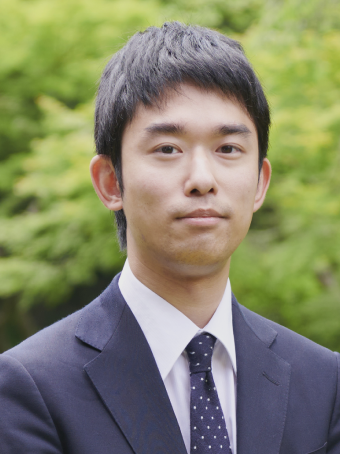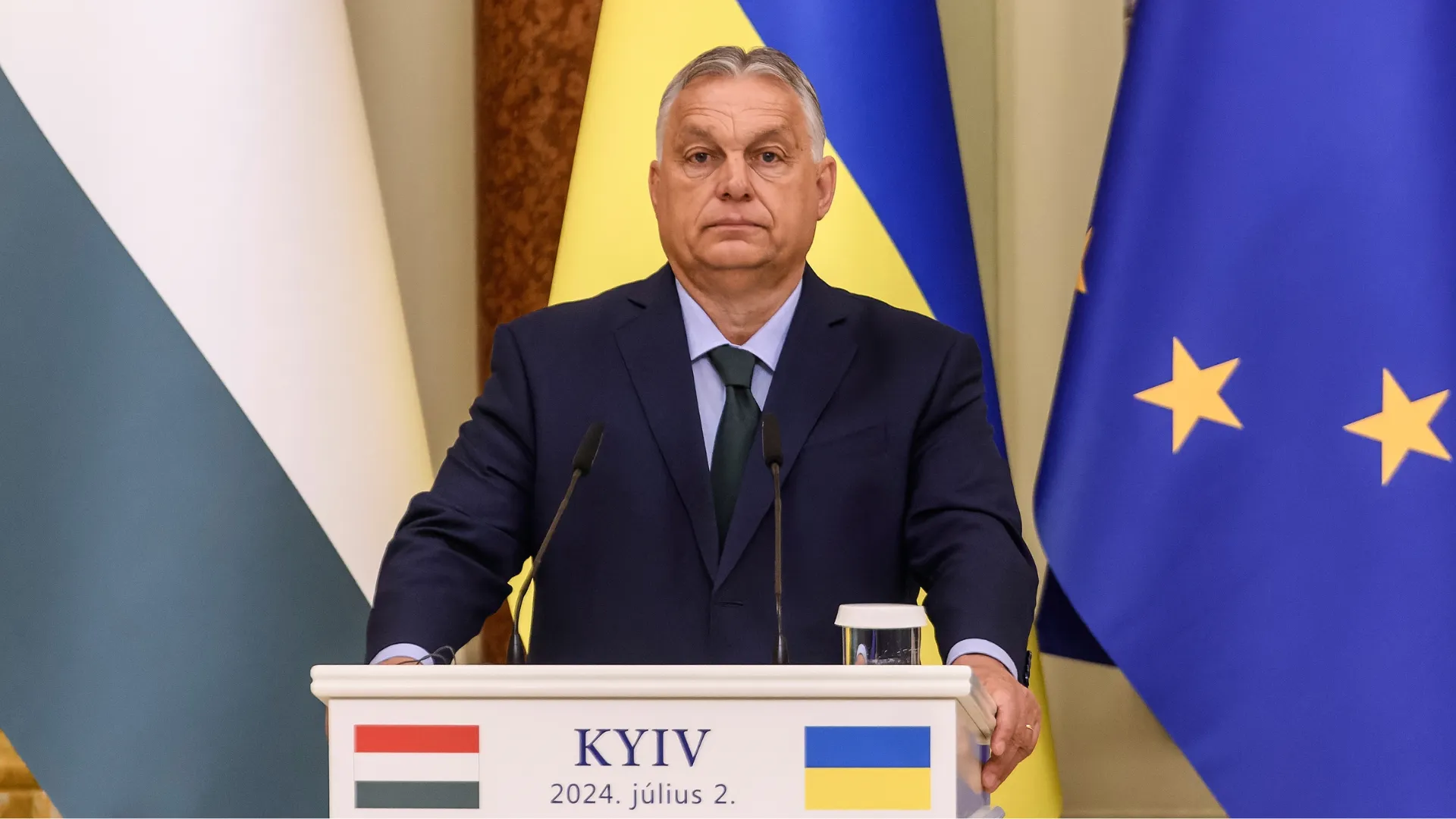Social media alone didn’t decide last year’s elections

But in truth, its importance has been overstated. In most cases, social networks alone did not determine electoral outcomes in 2024. More relevant, instead, was the interplay between online and on-the-ground campaigning.
Several major polls are expected this year, including Germany’s federal election later this month and a possible snap vote in South Korea should impeached President Yoon Suk Yeol be formally removed from office.
The 2024 “election year” offers three critical insights into these and other future polls: The resonance between disinformation and polarization is increasingly shaping democracy, voters’ distrust of incumbents and economic dissatisfaction are playing a determinant role, as is the interplay between on and offline campaigns.
Disinformation and polarization
In 2024, social media sites all over the world were inundated with disinformation spread by foreign sources, particularly authoritarian states targeting democracies, making this a critical issue to global security. Disinformation coupled with misinformation loomed so large that these issues were classified as the world’s greatest short-term risks by the World Economic Forum’s Global Risks Report 2024.
During the presidential campaign in the United States, a fake video alleging that Haitian migrants had committed voter fraud by casting multiple ballots was posted by an influencer who, it was later revealed, had received payments from Russian operatives. Similarly, in Moldova, multiple reports indicated the spread of Russian disinformation and large-scale vote-buying during the presidential election and European Union membership referendum — with the Kremlin unsurprisingly denying such allegations.
It was not only foreign agents who were engaged in manipulating the digital space: In the U.S., President Donald Trump’s campaign used generative artificial intelligence to produce a fake image showing Taylor Swift endorsing him.
Although the rapid increase in AI-generated falsehoods is concerning, the proportion of such content remains limited. That said, disinformation tends to spread more quickly than facts because it has more traction in the polarized political environment of countries like the U.S.
While nongovernmental organizations and media outlets conduct extensive fact-checking — as some major social media platforms were also doing until recently — this is not always effective in strongly polarized environments. Paradoxically, fact-checking can actually contribute to disseminating fake news by making it more visible.
As a result, disinformation not only disrupts society and fuels mistrust in factual information, but deepens political divisions.
Distrust, discontent and anxiety
But disinformation has not been the key factor behind electoral outcomes — at least until now. Many of last year’s elections were shaped by voters’ strong dissatisfaction, anxiety and distrust toward the political establishment.
Many particularly working and underprivileged citizens have not reaped the benefits of decades of globalization. Against a backdrop of rampant inflation, job insecurity and widening inequality — “It’s the economy, stupid,” quipped James Carville, U.S. President Bill Clinton’s political adviser, in 1992 — people are increasingly skeptical of traditional politics and media.
The anxiety and distrust of those who feel left behind go beyond mere demands for redistribution. People want their struggles to be recognized and solutions that have a tangible impact on their daily lives.
For instance, in Moldova’s presidential election, while alleged Russian interference drew the most international attention, much of the support for extremist policies stemmed from public discontent with the pro-European government’s failure to address inflation. Similarly, in France’s legislative election, dissatisfaction among both urban and rural voters around immigration contributed to support for the far-right National Rally.
In Bulgaria’s parliamentary vote, the pro-Russian, ultra-nationalist Revival party surged to third place, fueled by public disillusionment with and mistrust of existing parties, making coalition-building increasingly difficult and unstable.
In Romania too, a pro-Kremlin candidate, Calin Georgescu, won the first round of the presidential poll, therefore making it to the second, runoff vote despite (or in fact, because of) his extremist positions, including alleging that the Ukraine war was orchestrated by an imperialist military-industrial complex. The election was ultimately annulled due to alleged foreign and nonstate interference — of note, however, is that Georgescu’s campaign was conducted not through traditional media but social networks like TikTok, drawing a wide audience and support from young voters.
On and offline interplay
While cases like Romania’s show how online rhetoric can gain significant traction, most elections in 2024 saw a combination of on and offline campaigns.
For example, Peter Magyar, the leader of Hungary’s conservative opposition Tisza Party, diverged from liberal opposition parties’ focus on urban voters by visiting rural towns often overlooked by Prime Minister Viktor Orban of Fidesz. These gatherings, often livestreamed on social media, significantly boosted Magyar’s visibility and in the June European parliamentary elections, Tisza rose to become the second-largest party, reducing Fidesz’s vote share to below half for the first time since it took power in 2010.
Similarly, in Ireland’s general election, the center-right coalition of Fine Gael and Fianna Fail successfully blocked the rise of the nationalist Sinn Fein party by combining social media with grassroots campaigning.
Prime Minister Simon Harris, head of Fine Gael and known as the “TikTok taoiseach (prime minister),” gained attention for his social media-driven campaign. Meanwhile, Fianna Fail leader Micheal Martin focused on projecting an image of steady and reliable leadership, anticipating that Harris’ approach might lose momentum — a strategic combination that allowed the coalition to retain power.
These examples show that electoral success increasingly depends on integrating online and grassroots campaigning. Traditional centrist parties and the media face the challenge of adapting to these changes, rebuilding trust and engaging with dissatisfied communities in moderate policy debates. If not, parties and outlets touting extreme positions will continue gaining support, fueling the fire of polarization.
(Photo Credit: Reuters / Aflo)
[Note] This article was posted to the Japan Times on February 5, 2025:
https://www.japantimes.co.jp/commentary/2025/02/05/world/lessons-election-year-2024/

Geoeconomic Briefing
Geoeconomic Briefing is a series featuring researchers at the IOG focused on Japan’s challenges in that field. It also provides analyses of the state of the world and trade risks, as well as technological and industrial structures (Editor-in-chief: Dr. Kazuto Suzuki, Director, Institute of Geoeconomics (IOG); Professor, The University of Tokyo).
Disclaimer: The opinions expressed in Geoeconomic Briefing do not necessarily reflect those of the International House of Japan, Asia Pacific Initiative (API), the Institute of Geoeconomics (IOG) or any other organizations to which the author belongs.


Research Fellow,
Digital Communications Officer
Yusuke Ishikawa is Research Fellow and Digital Communications Officer at Asia Pacific Initiative (API) and Institute of Geoeconomics (IOG). His research focuses on European comparative politics, democratic backsliding, and anti-corruption. He also serves as External Contributor for Transparency International’s Anti-Corruption Helpdesk, as Associate Research Fellow at the EUROPEUM Institute for European Policy, and as Part-time Lecturer in European Affairs at the Department of Economics and Business Management, Saitama Gakuen University. Prior to his current roles, Research Associate at IOG and API, contributing to its translation project of Critical Review of the Abe Administration into English and Chinese. Previously, he has worked as Research Assistant for API's CPTPP program and interned with its Fukushima Nuclear Accident and Abe Administration projects. His other experience includes serving as a visiting research fellow at EUEOPEUM Institute, a full-time research intern at Transparency International Hungary, and as a part-time consultant with Transparency International Defence & Security in the UK. His publications include "NGOs, Advocacy, and Anti-Corruption" (In Routledge Handbook of Anti-Corruption Research and Practice, 2025) and A Dangerous Confluence: The Intertwined Crises of Disinformation and Democracies (Institute of Geoeconomics, 2024). He has been featured in national and international media outlets including Japan Times, NHK, TV Asahi, Neue Zürcher Zeitung (NZZ), Handelsblatt, Expresso, and E-International Relations (E-IR). He received his BA in Political Science from Meiji University, MA in Corruption and Governance (with Distinction) from the University of Sussex, and another MA in Political Science from Central European University. During his BA and MAs, he also acquired teacher’s licenses in social studies in secondary education and a TESOL (Teaching English to Speakers of Other Language) certificate. [Concurrent Positions] Associate Research Fellow, EUROPEUM Institute for European Policy, Czechia External Contributor Consultant, Anti-Corruption Helpdesk, Transparency International Secretariat (TI-S), Germany Part-time Lecturer, Department of Economics and Business Management, Saitama Gakuen University, Japan
View Profile-
 Fed-Treasury Coordination as Economic Security Policy2026.02.13
Fed-Treasury Coordination as Economic Security Policy2026.02.13 -
 Challenges for Japan During the U.S.-China ‘Truce’2026.02.12
Challenges for Japan During the U.S.-China ‘Truce’2026.02.12 -
 India and EU Sign Mother of All Deals2026.02.09
India and EU Sign Mother of All Deals2026.02.09 -
 Orbán in the Public Eye: Anti-Ukraine Argument for Delegitimising Brussels2026.02.04
Orbán in the Public Eye: Anti-Ukraine Argument for Delegitimising Brussels2026.02.04 -
 Trump, Takaichi and Japan’s Strategic Crossroads2026.02.03
Trump, Takaichi and Japan’s Strategic Crossroads2026.02.03
 Oil, Debt, and Dollars: The Geoeconomics of Venezuela2026.01.07
Oil, Debt, and Dollars: The Geoeconomics of Venezuela2026.01.07 Orbán in the Public Eye: Anti-Ukraine Argument for Delegitimising Brussels2026.02.04
Orbán in the Public Eye: Anti-Ukraine Argument for Delegitimising Brussels2026.02.04 When Is a Tariff Threat Not a Tariff Threat?2026.01.29
When Is a Tariff Threat Not a Tariff Threat?2026.01.29 Fed-Treasury Coordination as Economic Security Policy2026.02.13
Fed-Treasury Coordination as Economic Security Policy2026.02.13 A Looming Crisis in U.S. Science and Technology: The Case of NASA’s Science Budget2025.10.08
A Looming Crisis in U.S. Science and Technology: The Case of NASA’s Science Budget2025.10.08











